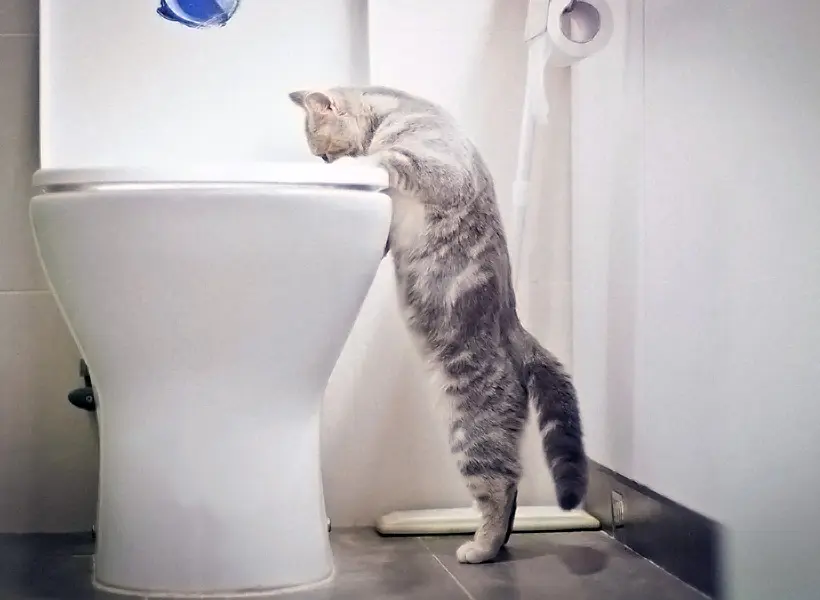Why You Mustn't Flush Cat Poop Down Your Toilet - Maintain Your Pipe Health
Why You Mustn't Flush Cat Poop Down Your Toilet - Maintain Your Pipe Health
Blog Article
Presented here below you'll find more reliable help and advice in regards to How to Dispose of Cat Poop and Litter Without Plastic Bags.

Introduction
As cat proprietors, it's vital to bear in mind exactly how we dispose of our feline pals' waste. While it may appear practical to purge cat poop down the bathroom, this technique can have damaging repercussions for both the environment and human health and wellness.
Ecological Impact
Flushing pet cat poop introduces damaging pathogens and bloodsuckers into the water supply, presenting a considerable danger to marine ecological communities. These pollutants can negatively impact aquatic life and concession water top quality.
Wellness Risks
Along with environmental problems, flushing pet cat waste can likewise posture health dangers to human beings. Feline feces may consist of Toxoplasma gondii, a parasite that can create toxoplasmosis-- a potentially severe ailment, particularly for pregnant women and people with damaged immune systems.
Alternatives to Flushing
Luckily, there are more secure and extra liable means to get rid of feline poop. Take into consideration the adhering to alternatives:
1. Scoop and Dispose in Trash
The most usual technique of dealing with feline poop is to scoop it into a biodegradable bag and toss it in the garbage. Make sure to utilize a dedicated clutter inside story and get rid of the waste promptly.
2. Usage Biodegradable Litter
Select biodegradable pet cat trash made from materials such as corn or wheat. These clutters are environmentally friendly and can be securely gotten rid of in the trash.
3. Hide in the Yard
If you have a yard, take into consideration burying cat waste in an assigned location away from veggie gardens and water resources. Make sure to dig deep sufficient to avoid contamination of groundwater.
4. Install a Pet Waste Disposal System
Buy an animal garbage disposal system particularly made for feline waste. These systems make use of enzymes to break down the waste, reducing odor and ecological impact.
Final thought
Responsible family pet possession extends beyond supplying food and shelter-- it additionally involves correct waste management. By avoiding purging cat poop down the bathroom and opting for alternate disposal approaches, we can reduce our environmental impact and shield human health.
Why You Should Never Flush Cat Poop Down the Toilet
A rose by any other name might smell as sweet, but not all poop is created equal. Toilets, and our sewage systems, are designed for human excrement, not animal waste. It might seem like it couldn’t hurt to toss cat feces into the loo, but it’s not a good idea to flush cat poop in the toilet.
First and foremost, assuming your cat uses a litter box, any waste is going to have litter on it. And even the smallest amount of litter can wreak havoc on plumbing.
Over time, small amounts build up, filling up your septic system. Most litter sold today is clumping; it is made from a type of clay that hardens when it gets wet. Ever tried to scrape old clumps from the bottom of a litter box? You know just how cement-hard it can get!
Now imagine just a small clump of that stuck in your pipes. A simple de-clogger like Drano isn’t going to cut it. And that means it’s going to cost you big time to fix it.
Parasitic Contamination
Believe it or not, your healthy kitty may be harboring a nasty parasite. Only cats excrete Toxoplasma in their feces. Yet it rarely causes serious health issues in the cats that are infected. Most people will be fine too if infected. Only pregnant women and people with compromised immune systems are at risk. (If you’ve ever heard how women who are expecting are excused from litter cleaning duty, Toxoplasma is why.)
But other animals may have a problem if infected with the parasite. And human water treatment systems aren’t designed to handle it. As a result, the systems don’t remove the parasite before discharging wastewater into local waterways. Fish, shellfish, and other marine life — otters in particular — are susceptible to toxoplasma. If exposed, most will end up with brain damage and many will die.
Depending on the species of fish, they may end up on someone’s fish hook and, ultimately on someone’s dinner plate. If that someone has a chronic illness, they’re at risk.
Skip the Toilet Training
We know there are folks out there who like to toilet train their cats. And we give them props, it takes a lot of work. But thanks to the toxoplasma, it’s not a good idea.

I have been very eager about Don’t flush cat feces down the toilet and I hope you enjoyed the entire article. So long as you enjoyed our article please don't forget to pass it around. Thank you for your time. Don't hesitate to check our blog back soon.
Website Report this page